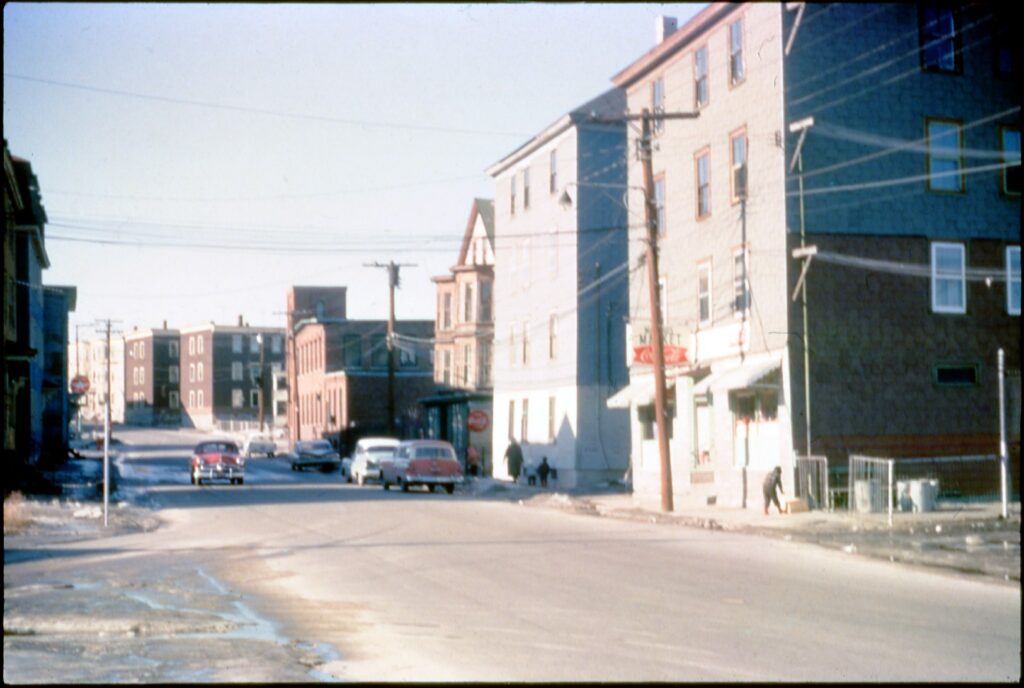Entertainment
Before the days when Bon Marche, Pollards. Lull & Hartford, the Five and Ten Cent Stores in Kearney Square plus Fred’s Toy Store in Centralville gave us visual displays of commercial toys manufactured at Metal Toys, American Flyer red wagons and Lionel Trains, etc., boys and girls in the city creatively developed their own, home-made toys such as slingshots, ropes for climbing trees, wooden sleds and toboggans, dirt roads fashioned from the ample dirt that had replaced the once grassy front yard, homemade bows and arrows, paper airplanes and, also, brown paper hats made from old shopping bag sacks.
The challenges faced by our little ones after WWII included a free rein on how to enjoy free time away from school and the responsibilities of delivering the Lowell Sun newspaper every day of the week with only three, annual holidays, i.e., Thanksgiving, Christmas, and New Year’s Day.
But, before my brother, Bob, and I decided to help with family finances through earning modest, weekly salaries with paper routes in the neighborhood – he was 7, and I was 11 – our days as enthusiastic young boys free from the daily reality of providing for our well-being or helping our parents manage our household was playful and loaded with fascinating discoveries about chestnut trees, frogs, focusing lenses and anthills.
Such a period of happy ignorance is. perhaps, naive and salutary, but it remains one of Mother Nature’s more benign periods in the personal development of her children.
Some questions are difficult to address and answer correctly.
All these experiences happened before television entered our daily reality, which occurred in late 1953. Ours was an isolated, poor, French-Canadian, immigrant community still trying to recover from the lingering austerity of the Depression and the rationing of WWII.

In many ways, we were more similar to our nearly destitute, Quebec, Catholic ancestors than to other Americans living in Pennsylvania, Ohio, or Alabama. In a sense, our chosen isolationism – See “Survivance” to better understand – protected us from the moral hazards and sharp, cultural differences found in the Greater-Lowell community.
Curiously, it was in the multi-faceted, commercial environment outside Centralville, Little Canada, and Pawtucketville that new career opportunities were developing.
What were the costs of this voluntary social separation? Is it possible for the sons and daughters of immigrant grandparents to retain all those unique, religious, linguistic, ethnic, cultural, culinary, and social attitudes and to, also, succeed in a striving, upwardly mobile, and very competitive world?

